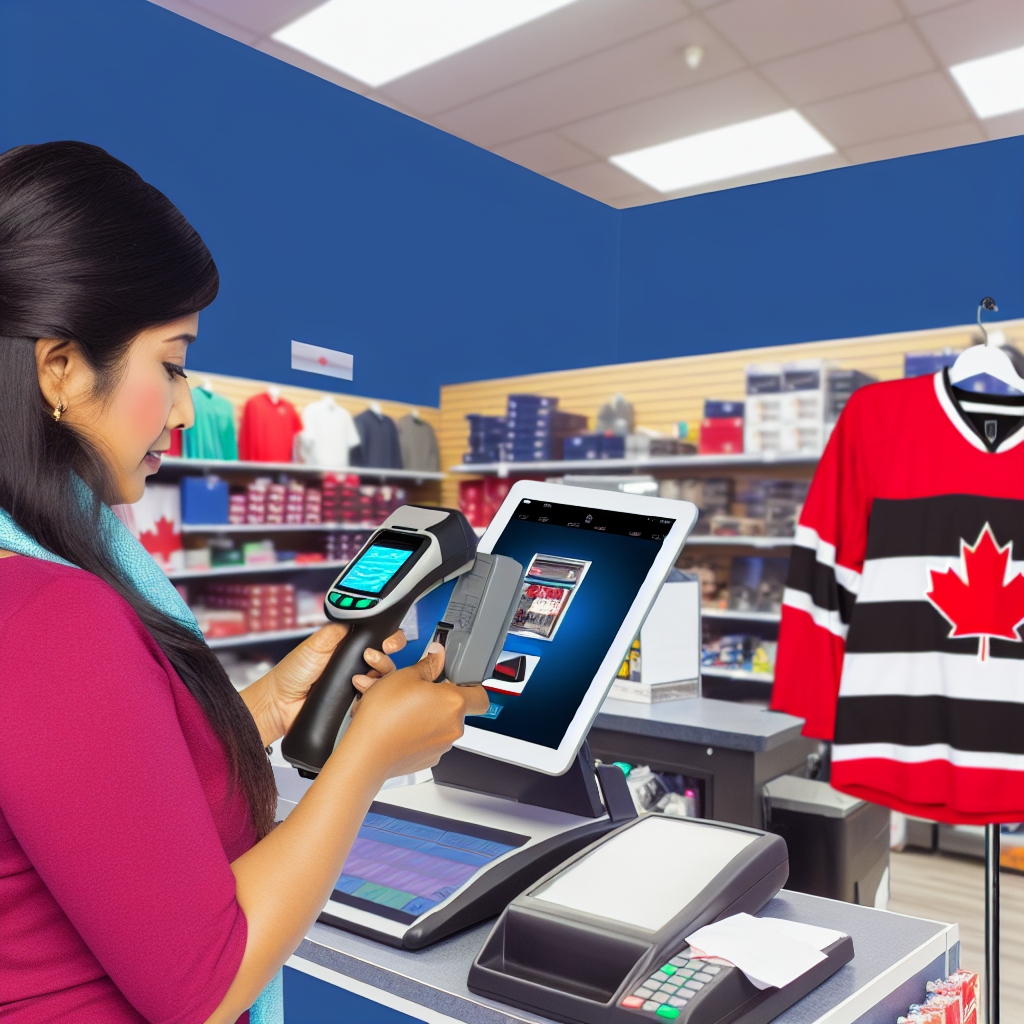Overview of Technology in Store Management
Introduction to Technological Advancements
Technology plays a crucial role in modern store management.
It enhances efficiency and improves customer satisfaction.
Stores now utilize various tech tools for daily operations.
Types of Technologies in Store Management
Retailers increasingly adopt point of sale (POS) systems.
These systems streamline transactions and track sales data.
Moreover, inventory management software helps maintain stock levels.
This tech reduces human error and improves accuracy.
Impact on Customer Experience
Technology transforms how customers interact with stores.
Mobile apps offer convenience for shoppers on the go.
Additionally, digital payment options enhance checkout speed.
Customers enjoy personalized experiences through data analytics.
Enhancing Operational Efficiency
Automation tools optimize store workflows significantly.
These tools handle repetitive tasks with speed and accuracy.
Consequently, employees can focus on customer service.
Data-Driven Decision Making
Data analytics provides insights into consumer behavior.
Retailers can identify purchasing trends and preferences easily.
This information guides marketing strategies and inventory choices.
Future Trends in Store Technology
Emerging technologies will shape the retail landscape further.
Artificial intelligence (AI) offers new opportunities for personalization.
Additionally, augmented reality (AR) enhances product visualization.
These advancements will likely redefine the shopping experience.
Key Technologies Transforming Store Operations
Point of Sale Systems
Modern POS systems streamline the checkout process effectively.
They provide real-time inventory management and analytics.
Moreover, they boost customer satisfaction through quicker transactions.
Businesses like MarketPro use advanced POS solutions to enhance operations.
Unlock Your Career Potential
Visualize a clear path to success with our tailored Career Consulting service. Personalized insights in just 1-3 days.
Get StartedE-commerce Integration
E-commerce platforms enable stores to expand their reach significantly.
They synchronize online and offline inventory effortlessly.
As a result, customers enjoy a seamless shopping experience.
Companies such as ShopConnect leverage this technology to maximize sales.
Mobile Payment Solutions
Mobile payments enhance convenience for consumers on the go.
They reduce the need for cash or physical cards during purchases.
Furthermore, mobile wallets promote quick checkouts and ease of use.
Retailers like QuickPay adopt these solutions to stay competitive.
Inventory Management Software
Effective inventory management software boosts operational efficiency significantly.
These tools allow accurate tracking of stock levels and sales trends.
Additionally, they minimize overstocking and stockouts effectively.
Retail brands like StockMaster utilize these solutions to optimize inventory.
Data Analytics and Customer Insights
Data analytics empower retailers to understand consumer behavior deeply.
Analytics tools uncover trends and provide actionable insights for marketing.
This information helps in tailoring products and marketing strategies.
Companies like Insight Retail harness these tools to drive sales growth.
Automation and Robotics
Automation technologies streamline various store operations efficiently.
Robotics in warehouses improve the speed of order fulfillment remarkably.
These innovations reduce labor costs while enhancing productivity.
Examples include retailers like StoreTech, who integrate robots in operations.
Customer Relationship Management Systems
CRM systems facilitate personalized customer service effectively.
They store customer data to enhance engagement and loyalty programs.
Furthermore, these systems help in tracking customer interactions seamlessly.
Retailers such as Customer First prioritize CRM for lasting relationships.
The Impact of E-commerce on Brick-and-Mortar Stores
Changing Consumer Behavior
E-commerce has transformed how consumers shop today.
Many shoppers prefer the convenience of online shopping.
This shift influences the foot traffic in physical stores.
Consumers now expect a seamless shopping experience.
To adapt, brick-and-mortar stores must enhance their services.
Integration of Technology
Brick-and-mortar stores increasingly leverage technology.
They use online platforms to reach broader audiences.
Mobile apps offer shopping tools and promotions.
Additionally, in-store technology improves customer experiences.
Integration of AR enhances product visualization.
Competition and Collaboration
The rise of e-commerce creates intense competition.
However, some stores find ways to collaborate.
Businesses can use a hybrid model to thrive.
For instance, local shops collaborate with online marketplaces.
This partnership allows them to expand their reach.
Adapting Business Models
Many traditional retailers are adjusting their business models.
They incorporate online sales alongside in-store shopping.
This strategy helps them cater to diverse consumer preferences.
Furthermore, inventory management systems have evolved.
Tech solutions optimize stock levels across platforms.
The Future of Retail
E-commerce will continue to shape the retail landscape.
Brick-and-mortar stores must stay innovative to succeed.
This innovation includes embracing future technologies.
Moreover, creating unique in-store experiences is vital.
Ultimately, a balanced approach will define success.
Delve into the Subject: Keys to Achieving Sales Targets Consistently
Inventory Management Systems and Their Importance
Understanding Inventory Management Systems
Inventory management systems streamline the tracking of stock levels.
These systems help retailers make informed decisions about purchasing.
Accurate data ensures that stores maintain optimal inventory levels.
Consequently, businesses can minimize stockouts and overstock situations.
Benefits of Using Technology in Inventory Management
Automated inventory systems enhance operational efficiency significantly.
They reduce human error associated with manual counting processes.
As a result, businesses save valuable time and resources.
Additionally, technology enables real-time tracking of inventory movements.
This capability provides insights into trends in consumer behavior.
Integrating Inventory Management with Other Systems
Integration enhances the overall efficiency of store operations.
For instance, linking inventory systems with sales software proves beneficial.
This connection allows for automatic updates to inventory levels as sales occur.
Moreover, it facilitates better forecasting based on sales data.
These integrated systems help retailers optimize supply chain management.
Case Studies of Successful Implementation
Many companies have transformed their inventory management through technology.
For example, FreshMart implemented an advanced inventory system.
They reduced waste by 30% while improving customer satisfaction.
Similarly, Trendy Boutique improved its stock accuracy exponentially.
These cases illustrate the significant impact of technology in retail.
Explore Further: How to Stand Out as a Sales Representative
Customer Relationship Management (CRM) Tools
Enhancing Customer Engagement
CRM tools help businesses engage effectively with customers.
They enable personalized communication through various channels.
Moreover, these tools track customer interactions and preferences.
As a result, businesses can tailor their marketing strategies.
Increased engagement often leads to higher customer loyalty.
Streamlining Sales Processes
Effective CRM systems automate many sales processes.
These systems track leads and manage sales pipelines efficiently.
Consequently, sales teams can prioritize high-value prospects.
This focus improves conversion rates and accelerates sales cycles.
Data-Driven Decision Making
CRM tools generate insightful data regarding customer behavior.
Businesses can analyze this data to identify trends and patterns.
Utilizing insights allows companies to make informed strategic decisions.
Additionally, data-driven approaches enhance overall business performance.
Integrating with Other Technologies
Modern CRM tools easily integrate with other software platforms.
This integration streamlines operations and improves workflows.
For instance, connecting a CRM with an e-commerce platform enhances customer insights.
Integrations with marketing tools amplify campaign effectiveness.
Training and Support
Successful CRM implementation requires adequate training and support.
Organizations should prioritize employee training on the chosen platform.
Ongoing support ensures users can maximize the system’s capabilities.
Moreover, regular updates keep the system functioning optimally.
Gain More Insights: How to Manage Inventory Efficiently as a Store Manager

The Role of Data Analytics in Retail Decision-Making
Understanding Data Analytics in Retail
Data analytics plays a critical role in modern retail environments.
It transforms raw data into actionable insights.
Retailers can analyze customer behaviors and preferences.
Moreover, they can improve inventory management through data analysis.
Enhancing Customer Experience
Data analytics enables personalized shopping experiences.
Retailers can tailor recommendations based on previous purchases.
This approach increases customer satisfaction and loyalty.
Additionally, utilizing analytics helps anticipate customer needs.
Optimizing Inventory Management
Data insights streamline inventory controls significantly.
Retailers can predict demand patterns for various products.
This optimization reduces overstock and stockouts.
Consequently, it leads to better resource management.
Promoting Effective Marketing Strategies
Data analytics provides valuable insights for marketing campaigns.
Retailers can target specific demographics with tailored promotions.
This data-driven approach increases return on investment (ROI).
Furthermore, analyzing previous campaigns improves future strategies.
Impact on Financial Decisions
Data-driven insights enhance financial decision-making processes.
Retailers can identify cost-saving opportunities within operations.
Moreover, predictive analytics forecasts sales trends effectively.
This informed approach assists in budget planning and allocation.
Collaboration Across Departments
Data analytics fosters collaboration among various retail departments.
Sales, marketing, and inventory teams can share relevant insights.
This teamwork leads to more cohesive strategies across the organization.
Ultimately, cross-departmental cooperation enhances overall performance.
See Related Content: The Ultimate Guide to Becoming a Sales Representative
Omnichannel Strategies: Integrating Online and Offline Experiences
Defining Omnichannel Strategies
Omnichannel strategies provide customers with a seamless experience.
These strategies integrate both online and offline shopping channels.
Shoppers may interact with brands through various touchpoints.
Benefits of an Omnichannel Approach
First, it enhances customer satisfaction significantly.
Next, it increases brand loyalty by offering convenience.
Additionally, businesses can improve their sales performance.
Key Components of Successful Integration
Unified inventory management is essential for success.
Customers should receive real-time updates on stock availability.
Moreover, personalized marketing boosts engagement across channels.
Utilizing Technology for Integration
Advanced analytics helps businesses understand customer behavior.
Mobile applications allow customers to engage anytime, anywhere.
Furthermore, customer relationship management (CRM) systems enhance communication.
Creating Cohesive Customer Experiences
Consistent branding across channels creates familiarity.
Interactive elements, like click-and-collect, elevate user experience.
Moreover, return policies should be uniform across platforms.
Challenges in Implementing Omnichannel Strategies
Integrating systems can pose technical difficulties.
Staff training is vital to ensure proper execution.
Additionally, it requires continuous evaluation and improvement.
Overcoming Implementation Challenges
Investing in robust technology eases integration complexities.
Establishing a dedicated team can streamline the process.
Frequent feedback from customers enhances strategy effectiveness.
Future Trends: AI and Automation in Store Management
The Impact of AI on Inventory Management
AI significantly enhances inventory management efficiency.
With predictive analytics, stores can forecast demand accurately.
This capability reduces excess stock and minimizes waste.
Additionally, AI-driven systems optimize reorder points effectively.
Consequently, businesses can maintain a balanced inventory.
Automation of Customer Service
Automation plays a pivotal role in customer service enhancement.
Chatbots provide immediate support to shoppers, 24/7.
This feature greatly improves customer satisfaction levels.
Moreover, automated systems handle inquiries swiftly.
This efficiency frees staff to focus on complex issues.
Data-Driven Decision Making
Technology enables data-driven decisions for retailers.
Access to real-time data helps businesses understand customer behavior.
As a result, they can tailor shopping experiences accordingly.
Furthermore, data analytics identifies trends and patterns.
This insight leads to more effective marketing strategies.
Integration of Robotics in Store Operations
Robotics integration is transforming store operations significantly.
Autonomous robots assist in restocking shelves effectively.
They also help in managing store layout efficiently.
Thus, human staff can concentrate on customer interactions.
This collaboration enhances overall store productivity.
The Rise of Contactless Technology
Contactless technology supports safer shopping experiences.
Mobile payments streamline transactions quickly and securely.
This trend increases customer convenience.
Furthermore, it reduces the risk of virus transmission.
As a result, customers feel more comfortable shopping in-store.
Emphasis on Personalized Shopping Experiences
Technology facilitates the creation of personalized shopping experiences.
By analyzing data, retailers can recommend products tailored to preferences.
This approach boosts customer engagement and loyalty.
Moreover, personalized marketing strategies increase conversion rates.
A customized approach enhances satisfaction and sales.




